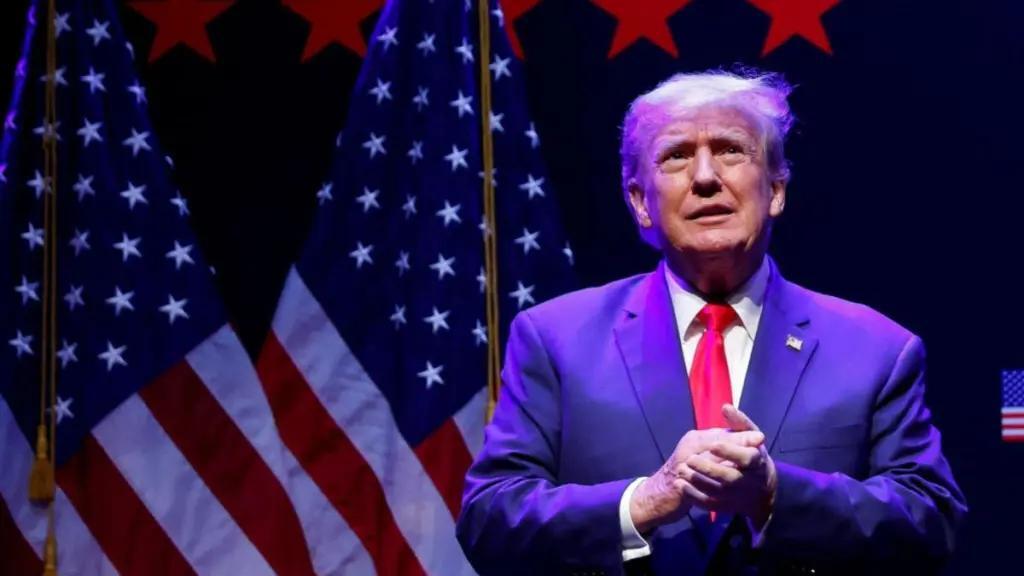
Donald Trump Exempts Smartphones & Computers from Reciprocal Tariffs
In a move that has sparked both relief and skepticism, United States President Donald Trump has excluded smartphones, computers, and other electronic items from the reciprocal tariffs he imposed on Chinese goods. The decision comes amid concerns from tech giants, including Apple, that gadget prices may rise due to Trump’s tariffs, as many of these products are manufactured in China.
According to a Customs and Border Patrol notice, the exemption will apply to a range of electronic products, including smartphones, laptops, tablets, and other electronic devices. This move is seen as a significant development in the ongoing trade war between the United States and China, as it eases concerns about the impact of tariffs on the tech industry.
The exemption is likely to benefit companies like Apple, Samsung, and Huawei, which rely heavily on Chinese manufacturing. These companies had expressed concerns about the potential impact of tariffs on their products, warning that higher prices could result in reduced sales and decreased demand.
The exemption does not come as a surprise, given the close ties between the US and Chinese tech industries. Many of the world’s leading tech companies, including Apple, Google, and Amazon, have operations in China and rely on the country’s manufacturing capabilities.
However, the exemption is not without its caveats. The Customs and Border Patrol notice specifies that the exemption only applies to electronic products that are “assembled” in China, rather than those that are “manufactured” there. This distinction is significant, as it means that products that are manufactured in China but assembled elsewhere may still be subject to tariffs.
The development is also seen as a tactical move by the Trump administration to ease tensions with China ahead of high-level trade talks. The exemption may be seen as a sign of goodwill by the US, which could help to facilitate negotiations and pave the way for a potential trade deal.
However, not everyone is convinced that the exemption is a positive development. Critics argue that the move is a concession to China, which may embolden Beijing to continue its aggressive trade practices. Others argue that the exemption is a thinly veiled attempt to protect US tech companies, which may benefit from the tariffs while foreign competitors are hit with higher costs.
The exemption has also sparked concerns about the impact on other industries, including manufacturing and agriculture. Some argue that the tariffs, which were imposed in response to China’s alleged unfair trade practices, are necessary to protect US industries and jobs. Others argue that the tariffs are a form of protectionism, which will ultimately harm consumers and the economy.
In a statement, the US Trade Representative’s office said that the exemption was intended to “mitigate the impact” of the tariffs on the tech industry. The office added that the move was part of a broader effort to “modernize” the US trade regime and promote “fair and reciprocal” trade practices.
The development is the latest twist in the ongoing trade war between the United States and China. The trade war, which began in 2018, has seen both countries impose tariffs on each other’s goods, with the US imposing tariffs on $250 billion worth of Chinese goods and China imposing tariffs on $110 billion worth of US goods.
The trade war has had far-reaching consequences, including a slowdown in global trade and a decline in economic growth. It has also sparked concerns about the potential impact on consumers and the economy, as well as the long-term consequences for global trade and investment.
In conclusion, the exemption of smartphones, computers, and other electronic items from reciprocal tariffs is a significant development in the ongoing trade war between the United States and China. While the move may ease concerns about the impact of tariffs on the tech industry, it also raises questions about the motivations behind the decision and the potential impact on other industries.
As the trade war continues to unfold, it is clear that the consequences will be far-reaching and complex. It is essential that policymakers and businesses alike take a nuanced approach, considering the impact on multiple industries and stakeholders.
Source:






